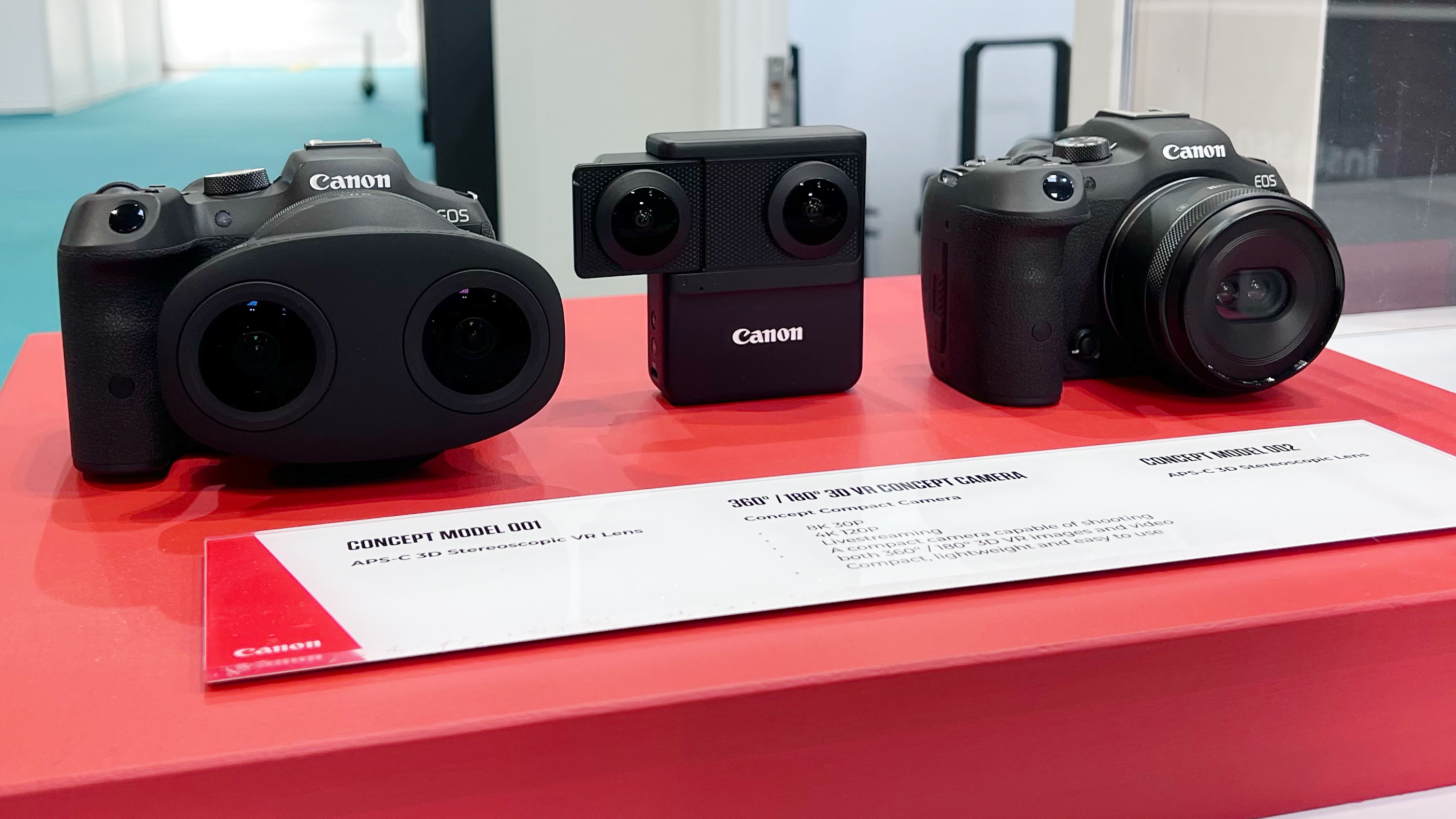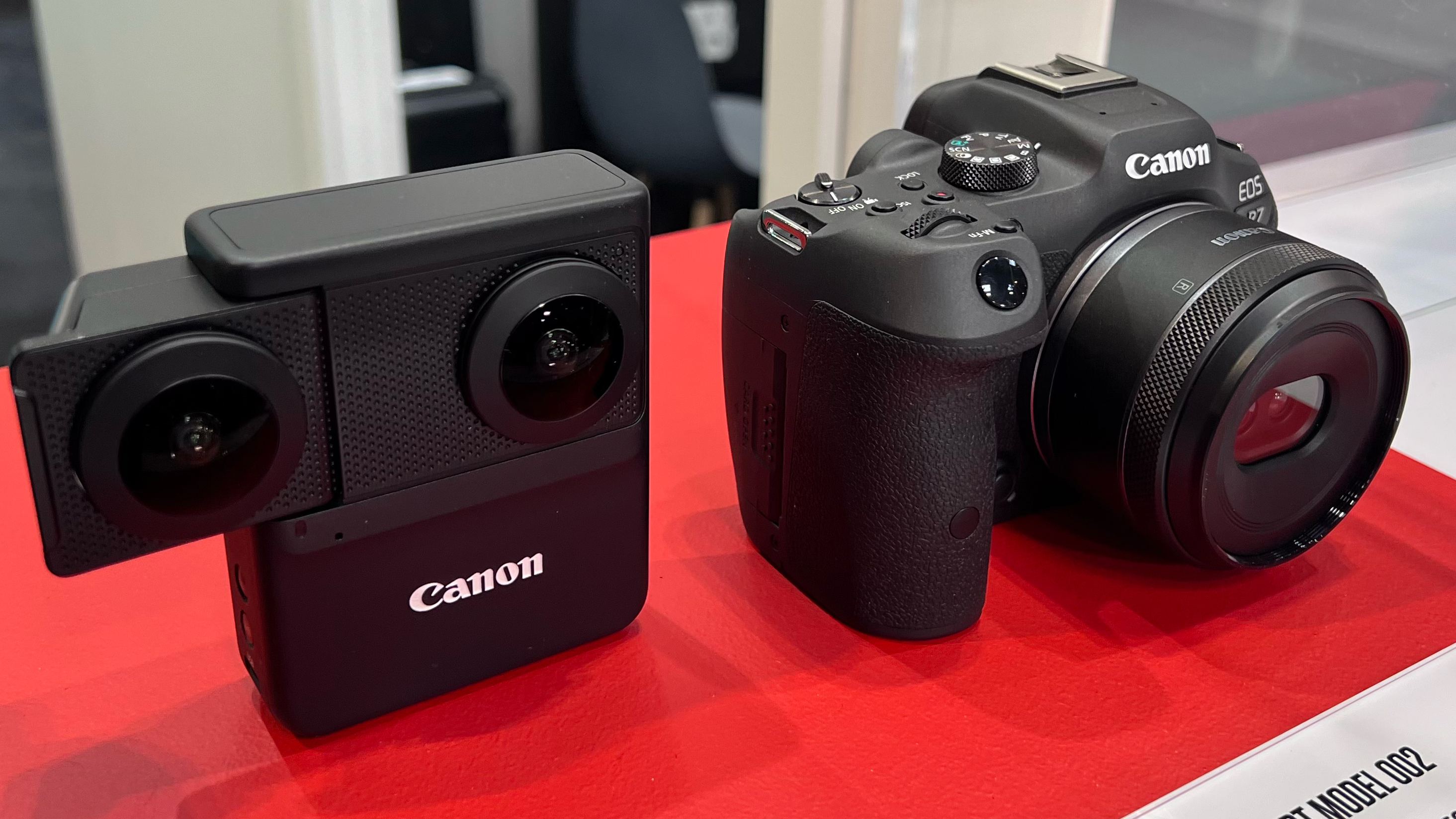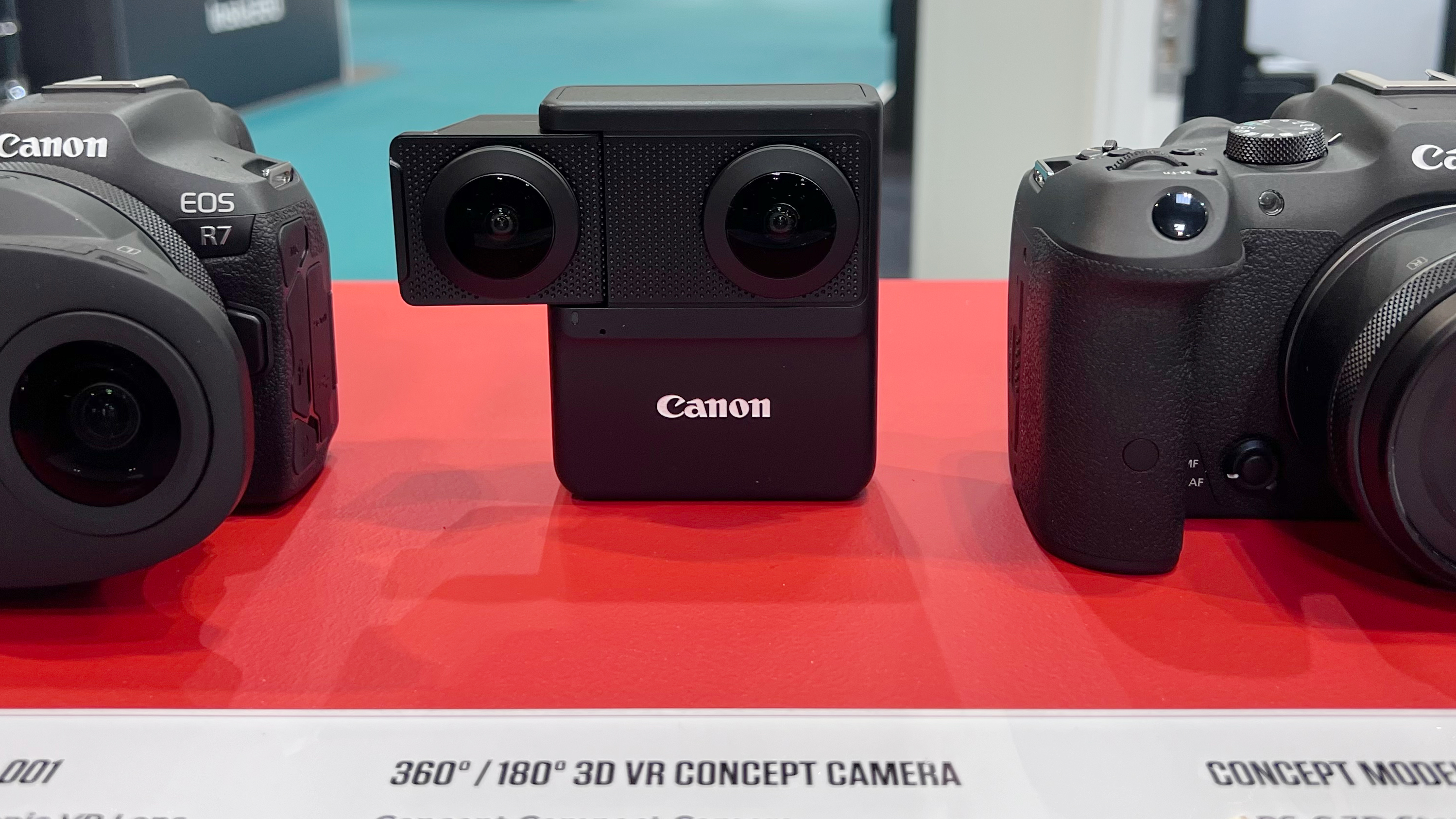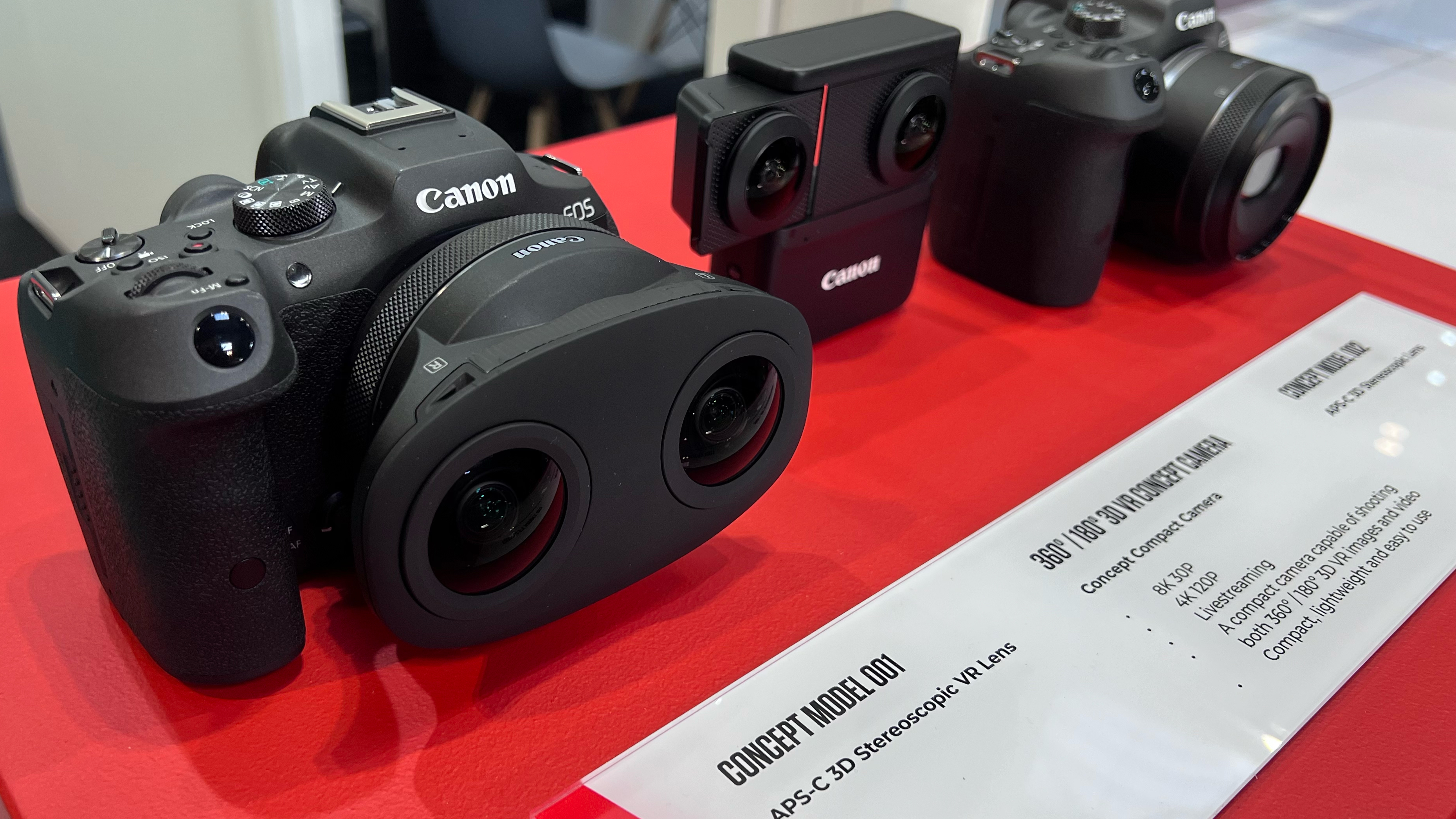
The Photography & Video Show kicked off today at the NEC in Birmingham, UK, and for the first time in Europe Canon has unveiled three new prototype Virtual Reality products. We caught up with Canon’s Imaging Product Marketing Lead, David Parry, to see what they're all about and dive deeper into why Canon is doubling down on VR products.
See Canon's VR prototypes for yourselves at The Photography & Video Show at the Canon stand (N400 and N500) which runs until Tuesday March 19.
The three new items on show are just prototypes at the moment, so are simply called the Concept Model 001 and Concept Model 002 lenses for Canon’s APS-C mirrorless RF-S bodies, and there's a 360º/180º 3D VR Concept Camera too.
Specifications for the new proof of concept models are sparse, with the Concept Model 001 simply stating ‘APS-C 3D Stereoscopic VR lens’ and the Concept Model 002 saying ‘APS-C 3D Stereoscopic lens’ on their respective spec sheets.
Both lenses have been designed to work with Canon’s APS-C mirrorless bodies, on display mounted to the Canon EOS R7, with David adding "We're unsure if the lenses could work on a full-frame body with a crop, but it's something that we're exploring at the moment".
As RF-S APS-C lenses, both should be small, light and also more budget-friendly, compared to Canon's RF 5.2mm f/2.8L Dual Fisheye lens that currently retails for $1,999 / £2,099 / AU$3,199, with David adding "the new lenses should lower the barrier to entry and make recording Virtual Reality [VR], mixed reality [XR] and augmented reality [AR] footage much more accessible".
As concept models there's currently no release date or pricing, though David said "the new lenses are pretty far along" and "we’re heavily invested in Virtual Reality and want to get these products out there as soon as possible".

David was only able to specify that one lens is a ‘true’ VR lens, while the other is only stereoscopic, though as the Concept Model 001 closely resembles the RF Dual Fisheye we would put our money on that being the ‘true’ VR version.
The Concept Model 002 bears a striking resemblance in size and appearance to Canon’s RF 50mm f/1.8 'nifty' fifty, though as we weren’t allowed to physically touch the prototypes we're unable to comment on weight.
It is, however, remarkably small for a VR lens – with both of its lenses on the barrel internals, instead of having two bulbous fisheye lenses on the outside that take up a lot more space and would make the lens more awkward to fit in a kit bag.

The 360º/180º 3D VR Concept Camera looks a little bit like a larger version of the recent Canon PowerShot V10, though features an additional lens that can be spun around for either front-facing 180º 3D / VR or rear-facing 360º VR. The spec sheet for this concept model states that it is capable of 8K 30p or 4K 120p and will have live streaming functionality.
Canon has also created a prototype VR headset, though David was keen to stress "we're more interested in creating the tools for users to create VR content" and went on to say "we’re sticking to what we’re best at and it's important for us to concentrate on making premium optics.
"Virtual reality is an important piece of technology for the future and how people will interact with images. It enables us to do things that we couldn’t dream of before. The two new lenses have been enabled by Canon’s large EOS RF mount, high-quality sensor and autofocus".
Canon’s reveal of new VR prototypes comes hot off the heels of the Apple Vision Pro headset that launched in February, and has opened up virtual and mixed reality to a brand-new and ever-growing audience.

David was also keen to share that Canon is currently working on the software side of things. In particular, it is looking to make it easier to live stream VR content – for example, from a live music concert straight to your home. This involves tricky equilateral conversions and a strong 5G Internet connection to stream the huge amounts of data without lag, which could cause motion sickness.
He also went on to say that the 5G wireless connection will allow for a better bitrate, which will make VR videos look sharper with more detail in each frame.
When talking about real-world use cases for VR, David was excited about the advantages for medical and emergency services. "We’re working closely with Canon Medical and it will be possible to train somebody up in VR, working on specialist machines without the need to be next to them… studies have shown a 40% greater retention of information when learning with VR. It's really in its infancy and I don’t think we’ve seen half of what it’s capable of".
You might be interested in the best VR headsets for 360, along with the best 360 cameras.







